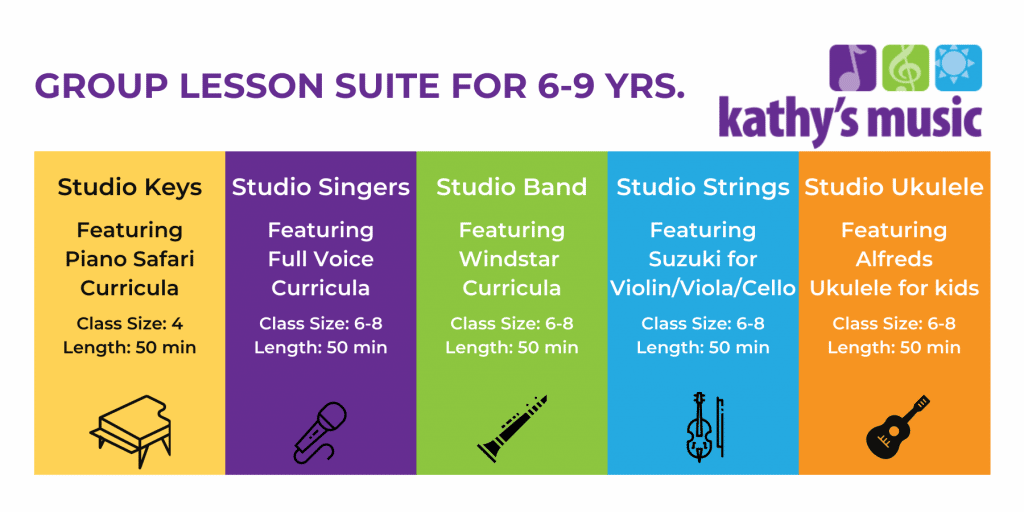The Surprising Benefits of Group Lessons.
Written by Christin Cooper, Group Lesson Coordinator at Kathy’s Music.
Merriam-Webster defines the term ensemble as “a group producing a single effect.” When translated directly from French to English, ensemble can be understood to mean “together.” The earliest iterations of this word stem from the Latin root insimul, or, “at the same time.” Therefore, the term ensemble can be understood as: A group producing a single effect together at the same time.

As a musician, this definition “fits” because it marries the concept of teamwork within the framework of time. An essential foundational skill for any music student is the development of musical timing. The most effective way for young students to develop an understanding of musical timing is through playing music with others. Activities such as maintaining a steady beat, stopping and starting together, slowing down or speeding up, and attending to a sound become imbued with concrete meaning when they are experienced as a group. In addition to the development of steady beat competency and rhythmic skills, performing music in ensembles provides students with many valuable skill sets, including:
- Critical listening, flexibility, and balance
- Communication and social skills
- Decision-making and problem-solving skills
- Musical analysis and general musicianship
- Performance skills, such as continuing to play despite mistakes while maintaining a steady pulse
As noted pedagogue Christopher Fisher writes, “By virtue of its structure, the group learning environment provides teachers and students with priceless ensemble opportunities from the very first lesson.” For the student, collaboration becomes an intrinsic element of his or her course of study from the very beginning. Fisher continues, “ensemble and collaborative music making is both fun and motivating. Students become part of a team. The accountability and interdependence associated with peer collaboration challenges students to produce high-quality work, both in preparing their individual parts and in the collective ensemble. In order for the team to be successful, all musicians involved must be thoroughly prepared.” In simple terms, students working together in small groups are motivated to keep up or even take a lead role because they begin to own the outcome. They realize just like in a team sport, that an ensemble of musicians have to work together and keep up their skills/learning to support their team mates.
This focus on teamwork will prepare students for ensemble experiences of all kinds, from playing in an orchestra to singing in an a cappella group to performing in their own rock bands. And as parents and teachers, we also know that these kinds of collaborative skills support personal success throughout all spheres of life.
Call 412-345-5200 or enroll online.

